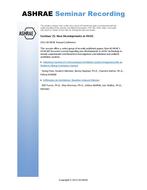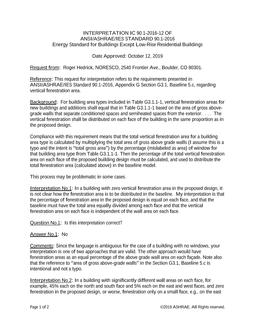Click here to purchase
In a typical data center, cooling airflow is distributed to Information Technology (IT) equipment through a raised-floor plenum utilizing perforated tiles. While the most important parameter affecting cooling performance is the perforated tile airflow rate, this quantity varies greatly across the facility and many design factors influence the amount of air that can be delivered through any given tile. This paper proposes a method for predicting tile airflow that is substantially simpler, faster, and cheaper than traditional computational fluid dynamics (CFD) while providing sufficient accuracy for data center design and management applications. The method is based on a numerical finite difference solution of the potential flow problem. Novel aspects of the potential flow solution include an iterative flow-pressure coupling technique to determine tile airflows, an efficient unstructured Cartesian grid system, and problem-specific solution control parameters. Tools have been developed with both two- and three-dimensional algorithms; the two-dimensional implementation provides the best compromise between speed and accuracy. These advances combine to produce an algorithm which predicts perforated tile airflow in “real time” for practical applications utilizing common computing hardware. Results have been validated against CFD and measured data.
Citation: ASHRAE Transactions, Volume 117, Part 2, Montreal, QC
Product Details
- Published:
- 2011
- Number of Pages:
- 16
- File Size:
- 1 file , 1.2 MB
- Product Code(s):
- D-ML-11-028


